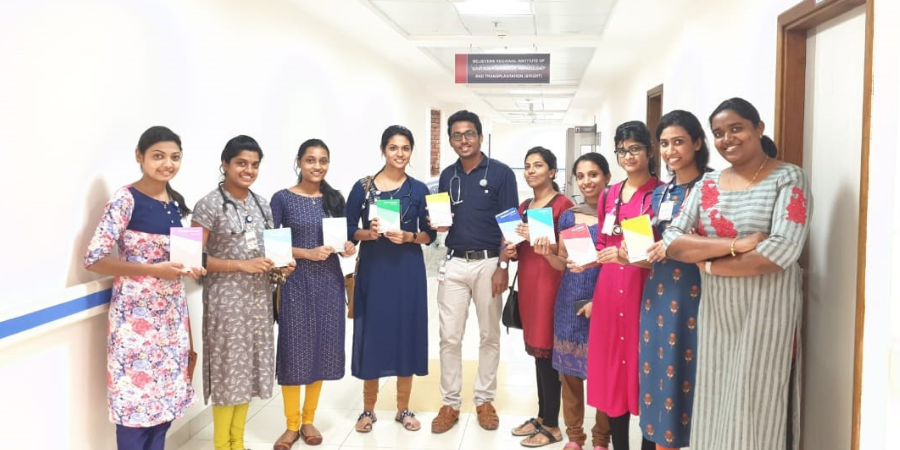The purpose of the Partnership Program is to support the quality use of medicines and the development and distribution of guidelines in low resource settings, usually in low- and middle-income countries.
We do this by working in partnership with government bodies, universities, and other local and international organisations to support and build local capacity in guideline development, guideline implementation and other quality use of medicine activities.
History
Ever since its establishment over 20 years ago, Therapeutic Guidelines has assisted other countries in accordance with the company vision ‘to improve outcomes through authoritative, practical, independent therapeutic guidance.’ This was mainly achieved by providing free copies of guidelines and giving permission for Therapeutic Guidelines products to be adapted free of charge for local use in low resource settings. In 2006, these activities were consolidated into the Developing Countries Program; the Visiting Editor Program was launched the following year.
Since 2016, the program has been funded by the Therapeutic Guidelines Foundation. This enabled the appointment of dedicated staff and the expansion of activities. We are now named the Partnership Program to better reflect our collaborative approach and focus on long-term outcomes.
Activities
Free access to Therapeutic Guidelines
Health professionals in low resource settings often do not have access to independent therapeutic information, with much of the information available supplied by the pharmaceutical industry or accessed from out-of-date donated texts.

Our complimentary access scheme has provided hundreds of healthcare workers in low- and middle-income countries with free Therapeutic Guidelines books and subscriptions to eTG complete. Although written for the Australian context, recipients find our guidelines useful to assist them in the care of their patients, as a secondary resource to complement local guidelines, in teaching, and as a basis for writing their own guidelines.
‘eTG complete is easy to access, use and understand. It will be a useful guide to help us write our local guidelines.’ Dr Folototo Leavai, Samoa.
Local guideline development support
We assist with the development of local standard treatment guidelines by providing tailored support for country-led guideline projects. For past projects this has included permission for countries to adapt Therapeutic Guidelines content, working with local guideline writing groups to develop a process suitable for their setting, and providing project management, editorial and publishing expertise.
Our Visiting Editor Program provides a two-week observership at the Therapeutic Guidelines office to support health professionals working on their own local guidelines to gain relevant experience and mentoring. Since 2007, we have hosted nine fellows from India, Cuba, Tonga, Palau, the Philippines, Kiribati, Nigeria, Argentina and Moldova.
Support for in-country implementation activities
Guideline Host is an app which contains locally developed or endorsed guidelines and other resources. Health practitioners can find the information they need quickly and easily through search and bookmark features. The app can be used offline when internet access is unreliable.
In low resource settings, printing and disseminating hardcopy guidelines is expensive and time-consuming; further, availability of hard copies during every patient encounter in every setting is unreliable. Guideline Host was developed with the aim of improving access to locally developed standard treatment guidelines at the point of care.
We partner with the national committee responsible for medicines and therapeutics to decide which resources are added to the app and to ensure the content stays up to date. We launched Guideline Host apps for Fiji and Solomon Islands in May 2018 and for Vanuatu in August 2020. The apps have now been downloaded by over 5,000 health care workers in the three countries.

Quality use of medicines activities
We support partner countries with guideline implementation, workshops and training, medicines-related community awareness campaigns and other quality use of medicines activities. Recent activities have included supporting World Antimicrobial Awareness Week activities in Fiji, Kiribati and Solomon Islands.
Regional focus
We mostly work with our near neighbours in the Pacific and prioritise countries in the Pacific and South-East Asia. However, our complimentary access program supports health professionals in low resource settings globally.
To find out more about our work or to collaborate with us, email partnershipprogram@tg.org.au.
The Partnership Program is funded by the Therapeutic Guidelines Foundation.

